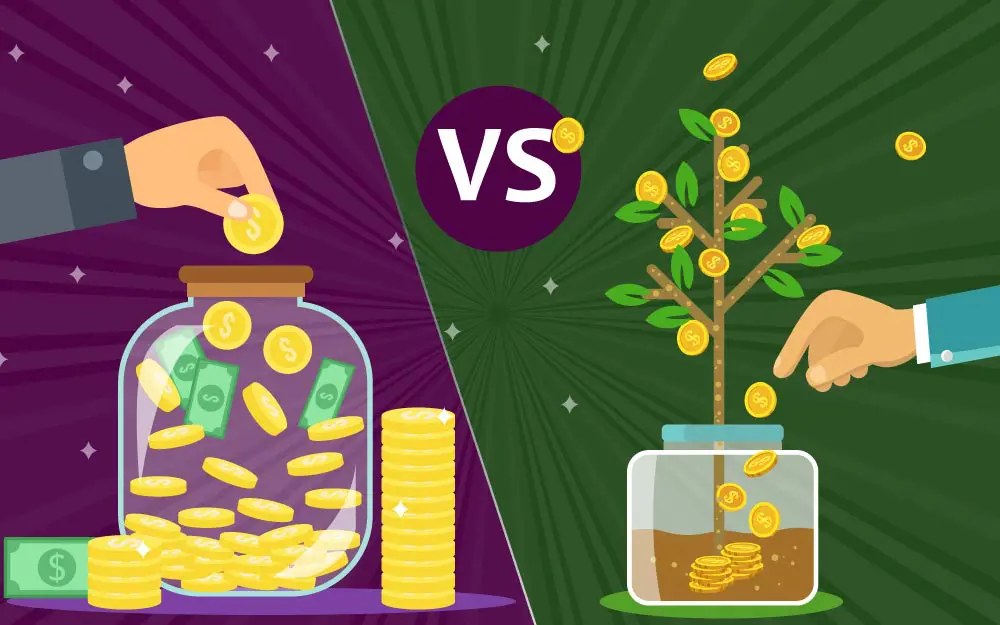I. Understanding Savings Accounts
What is a Savings Account?
A savings account is a secure place to deposit money, typically offered by banks and credit unions. It offers a modest interest rate, providing a safe haven for your funds while allowing easy access when needed.
Benefits of Saving Money
Saving money is prudent, especially for short-term goals or emergencies. It ensures liquidity and safeguards your funds against market volatility.
Limitations of Saving Money
However, the downside of saving money is the low returns. With interest rates often struggling to keep pace with inflation, the purchasing power of your savings may erode over time.
II. The Case for Investment
Benefits of Investing Money
Investing opens the door to higher potential returns compared to saving. By putting your money to work in the market, you have the opportunity to grow your wealth significantly over the long term.
Risks of Investing Money
Yet, investing is not without risks. Market fluctuations and economic downturns can lead to losses. Understanding and managing these risks is crucial for successful investing.
Types of Investments
From stocks and bonds to real estate and mutual funds, there’s a myriad of investment options catering to different risk appetites and investment objectives.
III. Factors to Consider Before Investing
Financial Goals and Risk Tolerance
Before diving into investments, it’s essential to clarify your financial goals and assess your risk tolerance. Are you saving for retirement, a home, or your child’s education? Understanding your objectives will guide your investment decisions.
Time Horizon
Your investment time horizon—the length of time you plan to youthhealth.co.uk—plays a significant role. Longer time horizons allow for a more aggressive investment approach, while shorter horizons may necessitate a more conservative strategy.
Market Conditions
Market conditions influence investment decisions. Bull markets may tempt investors to take on more risk, while bear markets may prompt a more cautious approach.
IV. When to Choose Investment Over Savings
High-Interest Debt Repayment
If you have high-interest debt, such as credit card debt, prioritizing debt repayment over saving is often the wiser choice. The interest accrued on debt can outweigh the returns earned from saving.
Emergency Fund
While having an emergency fund in a savings account is crucial, once you’ve built a sufficient cushion, redirecting excess funds into investments can yield higher returns over time.
Long-Term Goals
For long-term goals like retirement, investments offer the potential for significant growth. Starting early and harnessing the power of compounding can amplify your wealth accumulation.
V. Strategies for Successful Investing
Diversification
Diversifying your investment portfolio across different asset classes mitigates risk. By spreading your investments, you reduce the impact of market volatility on your overall portfolio.
Regular Contributions
Consistent contributions to your investment accounts, whether through automated deposits or periodic investments, harness the power of dollar-cost averaging, smoothing out market fluctuations over time.
Monitoring and Adjusting Investments
Regularly reviewing your investment portfolio and adjusting it in line with your financial goals and market conditions is crucial for long-term success. Rebalancing periodically ensures your portfolio remains aligned with your risk tolerance and objectives.
Conclusion
In conclusion, while saving money provides stability and security, investing offers the potential for wealth accumulation and financial growth. By understanding your financial goals, assessing your risk tolerance, and adopting sound investment strategies, you can make informed decisions that maximize your wealth-building potential.

